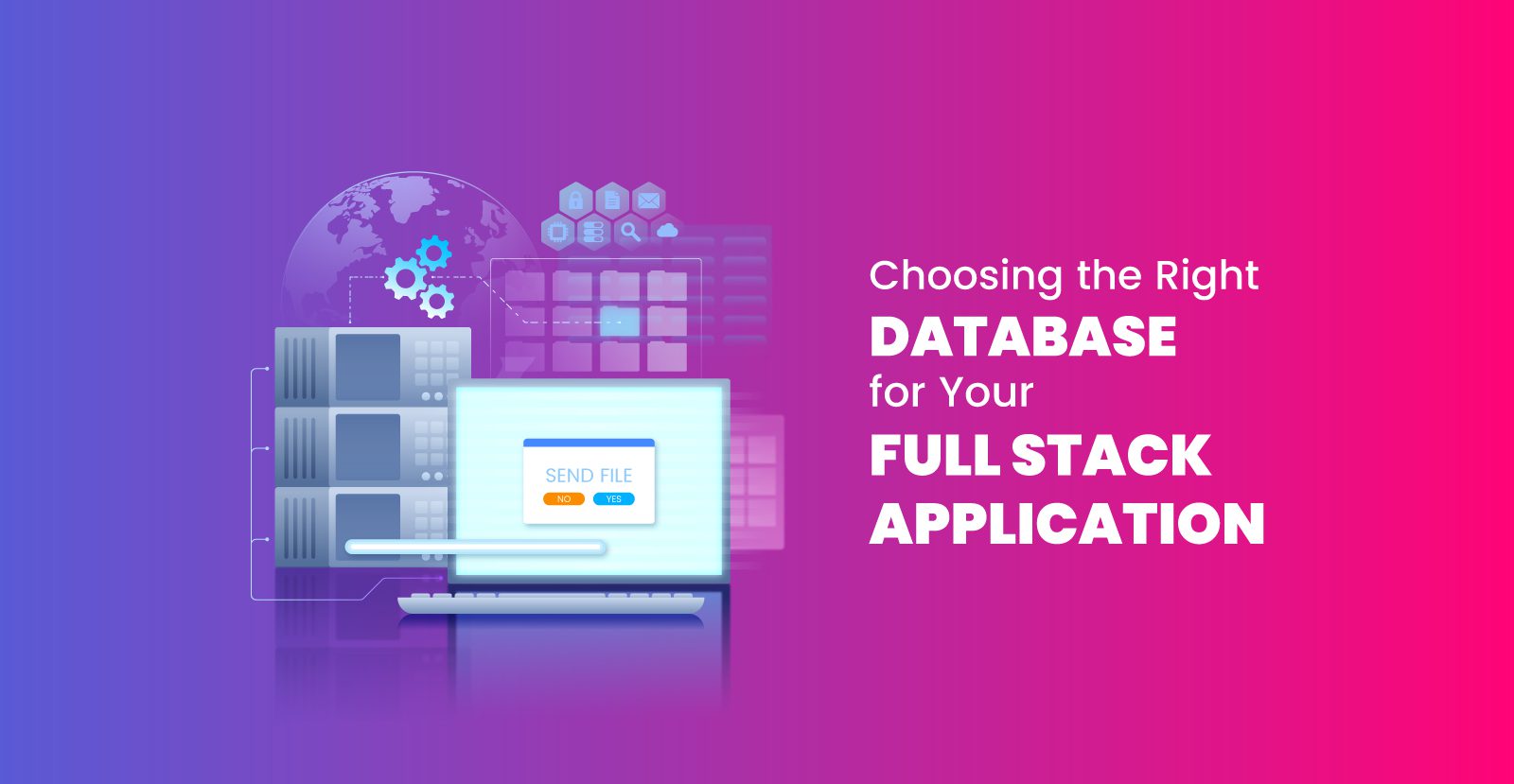Greetings, fellow tech enthusiasts and aspiring developers! Congratulations on embarking upon the thrilling expedition of crafting your very own full-stack application. Amidst this exhilarating journey, a pivotal crossroad emerges the selection of the perfect database. The question lingers, tantalizingly: which database type shall be your steadfast companion? Join us in this blog post, as we take an immersive plunge into the intricate realm of databases, where the time-honored SQL crosses swords with the contemporary NoSQL. So, don your metaphorical hard hats, for we’re about to lay the cornerstone of your database wisdom!
Understanding the Basics: SQL and NoSQL
Let’s embark on our database journey by unraveling the enigmatic acronyms at play. SQL, or Structured Query Language, serves as the cornerstone of the traditional relational database management system. This battle-tested approach hinges on tables to meticulously organize data, maintaining a rigorous adherence to predefined schema rules. In the opposite corner, we have NoSQL, a term that packs a punch—it stands for “Not Only SQL.” This dynamic realm houses an array of database systems that shatter the confines of conventional tabular relations seen in SQL databases. NoSQL champions flexibility and scalability, making it a canvas for innovative data structures.
Flexibility vs. Structure: The Clash of Titans
SQL databases thrive on structure. They use tables to organize data and enforce strict schema rules. This structure ensures data integrity and consistency, which is fantastic for applications where data relationships are well-defined. Think banking systems or airline reservations.
NoSQL databases, on the other hand, are all about flexibility. They’re like the jazz musicians of the database world—free-flowing and adaptable. With NoSQL, you’re not tied to a rigid schema. This makes NoSQL a fantastic choice for projects where data structures might evolve frequently, like social media platforms.
Scalability: Thinking Big (or Bigger)
When it comes to scalability, NoSQL databases often steal the show. Need to handle a massive influx of users and data? NoSQL databases are designed to scale horizontally, which means adding more servers to distribute the load. This is perfect for applications like IoT devices, where data pours in from various sources.
SQL databases, while certainly scalable, tend to lean more towards vertical scaling. This involves boosting the power of your existing server to handle increased load. It’s like upgrading your computer’s RAM to make it run faster.
Query Language: The Art of Retrieving Data
SQL databases boast a standardized query language. If you know SQL, you can work with different SQL databases relatively easily. This makes it great for applications where complex queries are common, like reporting systems.
On the flip side, NoSQL databases each come with their query language, which can vary widely. However, many NoSQL databases allow you to perform queries in a more intuitive way, especially for hierarchical or nested data structures.
Consistency vs. Availability: The Balancing Act
In the SQL vs. NoSQL showdown, there’s a trade-off between consistency and availability. SQL databases emphasize consistency—every transaction follows the rules, ensuring data is always accurate. However, this can occasionally lead to slower performance or even downtime.
NoSQL databases lean towards availability. They prioritize keeping the system up and running, even if it means sacrificing immediate consistency. For applications where real-time data is crucial, like live analytics, this trade-off is often worth it.
When to Choose What: Making Your Decision
So, how do you decide which one to choose for your full-stack application? Well, it depends on your project’s needs. If your data has a fixed structure and you require strict consistency, SQL might be your MVP. If you’re dealing with vast amounts of ever-changing data and require high scalability, NoSQL might be your star player.
In Conclusion: The Power of Choice
Ultimately, there’s no one-size-fits-all answer. SQL and NoSQL databases each have their strengths and weaknesses, making them suited for different scenarios. Your choice will depend on factors like your application’s requirements, expected growth, and the types of data you’re dealing with.
So, as you dive into the world of full-stack application development, remember that the database you choose isn’t just a behind-the-scenes detail—it’s a foundational decision that can significantly impact your project’s success. Whether you go with the structured elegance of SQL or embrace the flexible innovation of NoSQL, your database will be the backbone on which your application stands.
Happy coding, and may your databases always be optimized!



Please enter input field